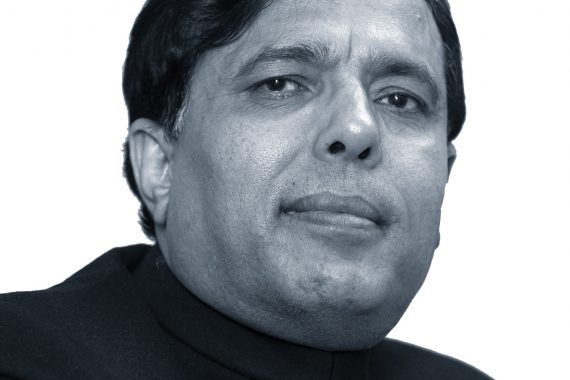Don’t demean the NHS’s concerns over Brexit as ‘mind over matter’

Home secretary Priti Patel has announced that freedom of movement could end in the event of a no-deal Brexit. This is an utterly ludicrous position and believed to be endorsed by the Prime Minister.
By this logic, it appears that NHS GPs or nurses who are EU nationals and happen to be on holiday on the time won’t be able to get back into the UK.
It’s no big secret that the NHS heavily relies on skilled overseas workers to keep it afloat. Currently, approximately 10% of our doctors hail from the EU, with 55,000 of the NHS’ workforce of 1.2 million – from nurses to physiotherapists, dietitians to radiographers.
The most toxic consequence of leaving the EU will be to discourage EU-bred talent from working in the NHS, which is of course already suffering enormously from the recruitment and retention crisis that shows no sign of recovery.
Already, we are seeing trends – while fewer arrive, more depart, and 10,000 EU nationals have left the NHS in a year. Britain’s most vulnerable patients don’t simply depend on EU GPs, nurses and surgeons, but on an army of notionally ‘unskilled’ carers, porters and cleaners who all play a hefty role in keeping people alive and well.
For GPs, the lack of secondary care and paramedic staff will have inevitable effects, as we’ll be expected to meet any shortfall in care. Pulse has already revealed that GPs up and down the country are averaging 11-hour working days, as well as that general practice waiting times have hit their worst-ever level – typically 15 days. Alas, these aren’t enough to stop the Prime Minister from wanting to reduce waiting times further, by restricting the entry of doctors from the EU.
It’s about patients, who would be left without doctors, nurses and essential medicines
The economic and political instability ushered in by Brexit is a collective recipe for huge risk and uncertainty for the NHS in general and general practice in particular. Its repercussions, including of further deacceleration of recruitment and retention of the workforce, may be so catastrophic that they destabilise the healthcare system to the point of disintegration. But this is no far-fetched fear – the effects are already being lived. In fact, Brexit has been identified as the ‘one thing’ slowing down international GP recruitment.
No reasonable Government would even contemplate the act of self-harm that crashing out of the EU with foolish policies on immigration would amount to.
Last week, Boris Johnson stated: ‘I’m not pretending there won’t be bumps on the road… but if everybody puts their minds to it, I have no doubt we can get ready’.
Mr Prime Minister, it’s not a case of mind over matter – the sustainability of the NHS is so much more empirical than that. Rather, it’s about patients, who would be left without doctors, nurses and essential medicines. Already, a Pulse survey showed that almost half of GPs believe that Brexit has increased their patients’ anxiety levels. And earlier this month, it came out that almost £450m has been allocated to stop drug shortages in the event of a no-deal Brexit.
Furthermore, the UK’s exit from the European Medicines Agency means the NHS will have less favourable access to the cheap medication available on the EU market. Insulin and vaccines, for example, could significantly rise in price, which will, of course, add to the costs of funding the service.
Meanwhile, if the economic impact of Brexit hits public finances in the way that’s been predicted, it will become even more difficult to properly fund the NHS.
A no-deal Brexit on 31 October stands to damage staffing, funding, access to new products and technology and standards of public health.
Dr Kailash Chand OBE is a retired GP in Tameside









